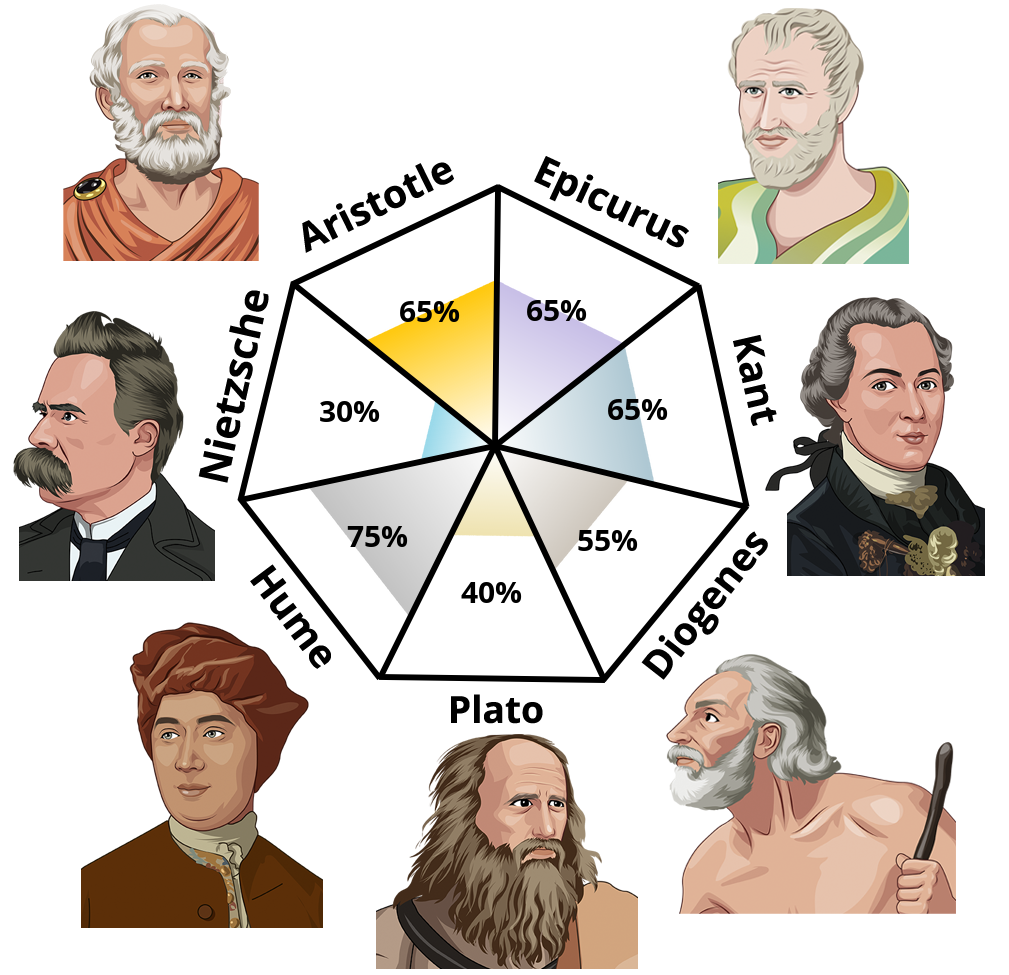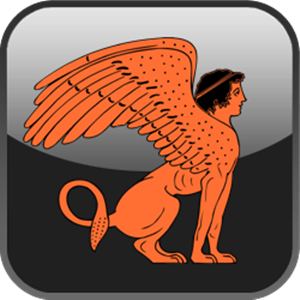Philosopher Personality Test
You are here because one of your friends linked you to their Philosopher Personality Test result:
Take the TestResults:

Your friend's traits are closest to those of Hume.
Take the TestHume: Hume was skeptical of most beliefs – be they religious or derived from pure rationality without experimental data to back them up. Consequently, friction with the settled orthodoxies of his time was a constant theme in his life. Like the other empiricists that preceded him, Hume believed that the contents of the mind came only from experience. Hume is known for the is-ought divide, also called Hume’s Fork: The proposition that it is not possible to derive an “is” from an “ought” (e.g., we cannot go from the moral proposition that everyone ought to be equally smart to the factual proposition that everyone is equally smart). Hume also proposed tremendous challenges to concepts like causation and induction – challenges that some consider have never been solved to this day.
References
- Durant, W. (1926). The story of philosophy: The lives and opinions of the great philosophers. Simon and Schuster.
- Hergenhahn, B.R. (2009). An introduction to the history of Psychology. Wadsworth Cengage Learning.
- Norton, D. (2011). David Hume: A treatise of human nature. Oxford University Press.
Take Next
GET THE FULL STORY
Become a lifetime member with a one-time payment
WHAT YOU GET
Access to members-only tests
Ability to track and save test results
Access to all of our eBooks (value $44.94)
Access to premium type assessments and infographics
Become a memberGET THE FULL STORY
Parmenides Priest of Apollo
WHAT YOU GET
Comprehensive study of Parmenides’ fragments 2-8, offering an in-depth exploration of his metaphysical philosophy, the nature of being, the way of truth, and the way of seeming, presented in a clear style with connections to ancient and modern philosophical traditions.
Authoritative analysis grounded in canonical translations and enriched with references to scholarly works, providing a robust interpretation of Parmenides’ enigmatic poem, ideal for students, philosophers, and enthusiasts of Pre-Socratic thought.
Unique initiatory perspective framing the poem as a sacred rite aligned with Apollonian mysteries, complete with a chantable rendition of fragments 2-8, designed to evoke the oral tradition of Parmenides’ time and deepen metaphysical understanding.
14-day, no-questions-asked, money-back guarantee.
Order NowSave and monitor your results over time
Become a member today
Sign Up











